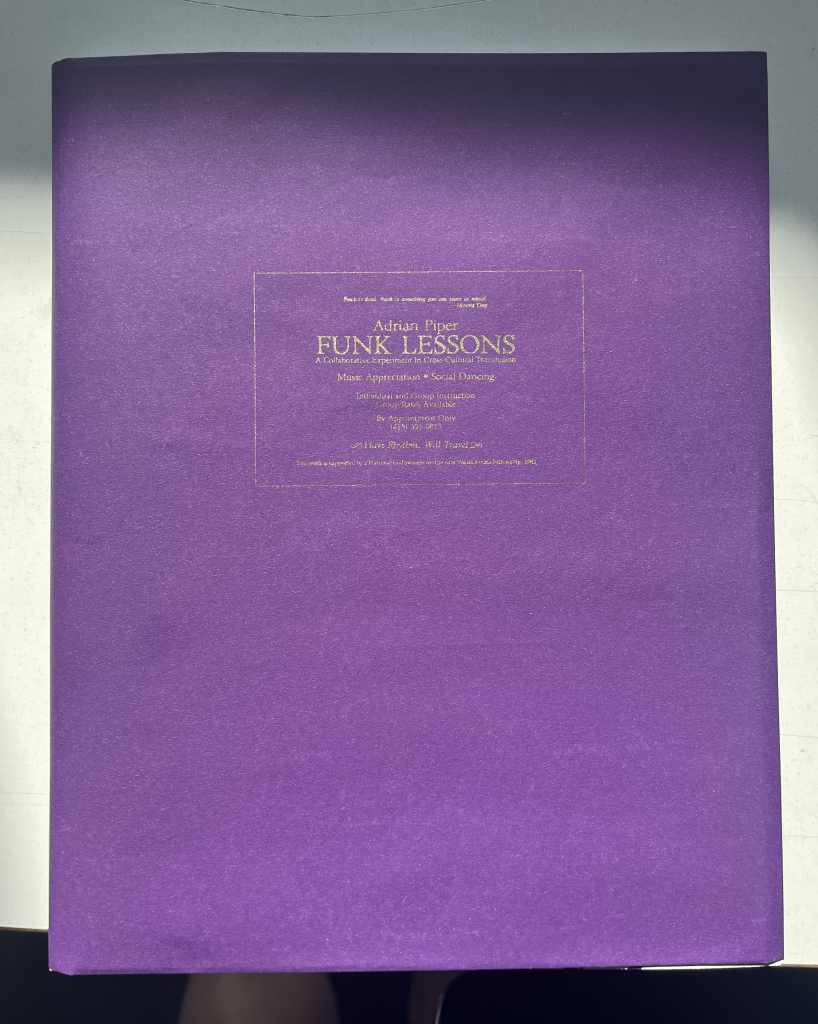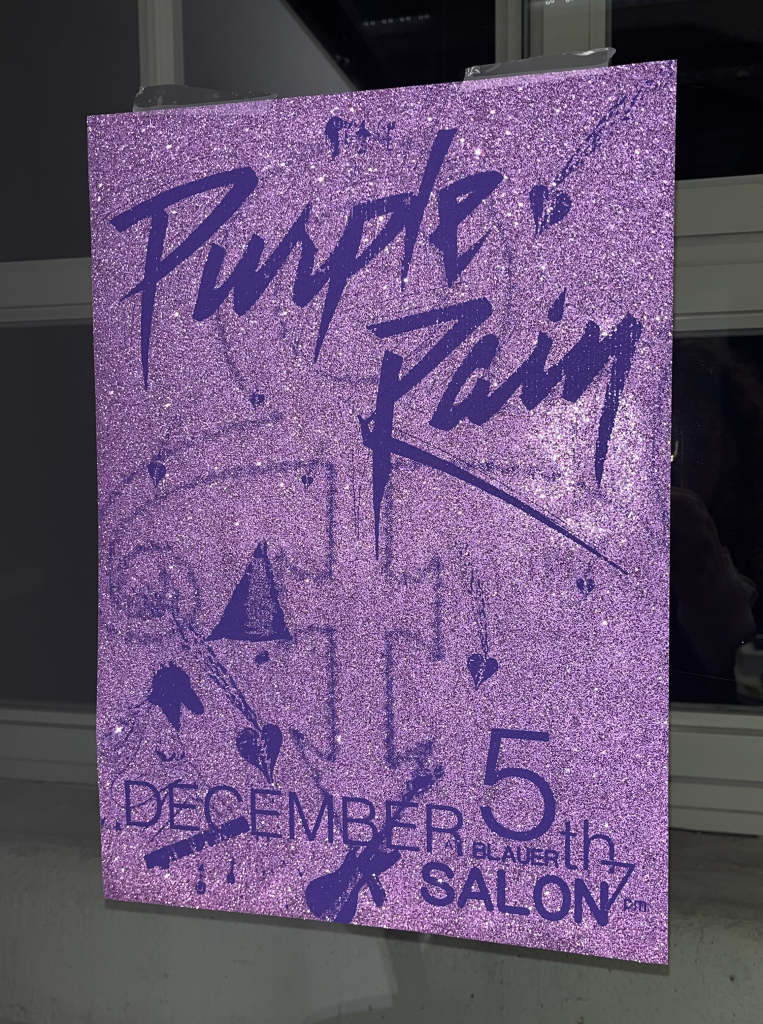Funk Lessons
KD seminar by prof. Line-Gry Hørup
Calling cards, essays, presentations and individual works.
31.10 2023 – 13.2 2024
Description:
In this seminar we will examine the linguistic and somatic language of selfhood and political action, through the work of Adrian Piper, Prince and Terre Thaemlitz. Main activities will be browsing through archives of our three protagonists, collective reading; listening to music; looking at dance; write and assemble within a few simple formats of printed matter, on what we learn, who we are and what we wish to teach others.
Have Rhythm, Will Travel
Between 1982-83 artist Adrian Piper gave a series of funk lessons across American colleges. The lessons were an essential part of her work as a performance artist and included lectures on the history of funk music addressing the ambiguous status of African-American working class music and dance as serious contributors to American art and culture. Piper says “In the performance I teach my audience how to listen to this music and how to dance to it (…) Typically people tend to say things like: ‘Funk is boring and monotonous’ – which seems to me, basically, that it has no structure”. During the lectures, Piper not only taught people simply how to dance, but unfolds the genre of funk through a historical, structural and political prism. From this perspective, funk is the gateway to a trance-like and possibly transitional state of identity, while a community signals a call for action against seemingly insurmountable life conditions.
Piper is a satirical cornerstone of activism, utilising as much as paraphrasing, the repetitive language of advertisements, aphorisms and mantras. In her work, the ‘calling card’ is a recurrent format. In the 18th and 19th century, particularly among the upper classes, to leave a small, decorative card when calling on someone, was a common practice. It was carried around by individuals to present themselves to others, later transforming into a possession for professional purposes – a ‘business card’ – were as, now, is such a format suitable, as a way in which to call for action and to present ourselves to others?
A Kantian philosopher and fluent German speaker, Piper later fled to Berlin to live permanently, setting up the Adrian Piper Research Library and refusing to ever return to America. As part of the transition, her musical focus moved from funk to house.
House Music is Controllable Desire You Can Own
Terre Thaemlitz is a musician, composer, public speaker and owner of the record label Comatonse Recordings. She was an active part of the act-up movement in the 1980’s New York, through which she established a succesful career as a house DJ by the moniker DJ Sprinkles. The name arrived from Thaemlitz overhearing a jingle on TV, for some new shake-and-bake product, wherein the catchphrase kept repeating: “sprinkles in the mix, sprinkles in the mix” – and Thaemlitz thought: “I can recon with that, I’ll be the sprinkles in the mix”. Be that potently critical sprinkles, as her work assembles a set of objectives in favour of opposition, she says: “I emphasise the need for strategies of negativity in reaction to this cultural climate of imposed optimism, and the experience of finding myself with incredibly few tools for discussing, let alone acting, otherwise.”
Kiss
And Prince? He was determined by way of his own musical laws, to establish harmony, serving as a lightning pole and bring cosmic energies into union. In the midst of a dispute on ownership with his record label, he changed his stage name to an unpronounceable symbol (also known as Love Symbol). In his 1996 interview with Oprah Winfrey, he suggested people type it on the computer as “O(+>”. In this period he was most often referred to as “The Artist Formerly Known as Prince” or “The Artist”. As he managed to receive sole rights to all master recordings, emancipated and point proven, he returned to the use of his own name.
Reader:

Poster for film screening at Blauer Salon:
